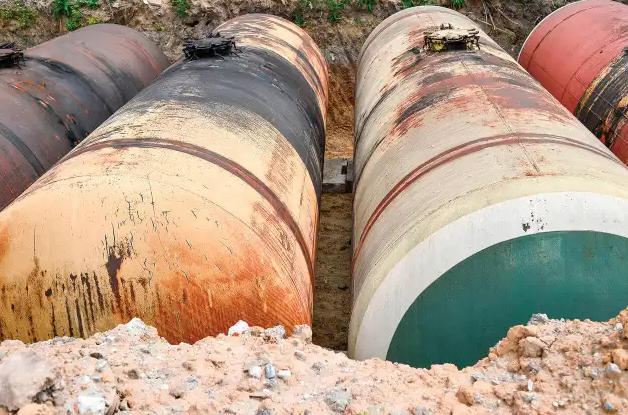 For Indiana businesses that utilize underground storage tanks (USTs), adhering to the guidelines of underground storage tank inspection in Indiana is not just a regulatory necessity; it’s also a strategic business practice. Regular UST inspections are crucial for maintaining safety standards, protecting the environment, and ensuring compliance with state regulations. In this article, we will explore the various aspects of UST inspections, from understanding the environmental impacts and regulatory landscape to recognizing the business advantages and best practices that benefit Indiana enterprises.
For Indiana businesses that utilize underground storage tanks (USTs), adhering to the guidelines of underground storage tank inspection in Indiana is not just a regulatory necessity; it’s also a strategic business practice. Regular UST inspections are crucial for maintaining safety standards, protecting the environment, and ensuring compliance with state regulations. In this article, we will explore the various aspects of UST inspections, from understanding the environmental impacts and regulatory landscape to recognizing the business advantages and best practices that benefit Indiana enterprises.
Guarding the Environment: The Critical Role of UST Inspections in Indiana
To grasp the full impact of USTs on Indiana’s environment, it is essential to consider the potential risks and consequences of inadequate maintenance:
-
Contamination Prevention: Regular inspections help prevent hazardous substances from leaking into soil and groundwater, which can affect local ecosystems and water quality.
-
Health and Safety: Leakages can introduce harmful chemicals into drinking water sources, posing health risks to communities. Timely detection and repair of tank issues are essential to avoid these dangers.
-
Economic Impact: Environmental damage can lead to costly clean-up operations and affect the local economy, especially in areas dependent on agriculture and natural resources.
-
Biodiversity Threats: Leaks from USTs can adversely affect local wildlife, disrupting habitats and food sources critical to ecosystem health.
Understanding these risks highlights the critical need for rigorous inspection protocols to protect both the environment and public health in Indiana.
Staying on the Right Side of the Law: Understanding Indiana’s UST Regulations
Indiana businesses face a complex set of regulations designed to safeguard the environment and public health:
-
IDEM Regulations: Indiana businesses must comply with guidelines set by the Indiana Department of Environmental Management (IDEM), including registration and regular maintenance of USTs.
-
Compliance and Penalties: Failure to comply with UST regulations can result in hefty fines and legal issues. Regular inspections ensure businesses meet state standards and avoid penalties.
-
End-of-Life Procedures: Proper decommissioning of USTs as per state regulations is crucial to prevent long-term environmental damage.
-
Record-Keeping Requirements: Accurate documentation of inspections, maintenance, and any incidents is mandatory and vital for legal and regulatory compliance.
Navigating these regulations is not just about adhering to the law—it’s about taking proactive steps to ensure sustainable business operations and environmental stewardship.
Strategic Benefits: How UST Inspections Enhance Indiana Business Operations
Regular UST inspections offer several business advantages beyond mere compliance:
-
Cost Savings: Regular inspections reduce the likelihood of costly leaks and clean-up operations. This preventive measure saves businesses significant amounts of money in potential remediation costs.
-
Operational Efficiency: Maintaining USTs through regular inspections ensures they operate efficiently and last longer, which is economically beneficial.
-
Reputation and Insurance: Adherence to safety standards and environmental regulations improves a company’s market reputation and can lead to lower insurance premiums.
-
Risk Management: Proactively managing UST integrity helps mitigate risks associated with operational disruptions or environmental liability.
These advantages underline the value of regular inspections not only as a regulatory requirement but as a sound business strategy that promotes long-term sustainability and profitability.
Operational Excellence: Best Practices for UST Compliance and Environmental Safety in Indiana
To effectively achieve compliance and protect the environment, Indiana businesses should consider these best practices:
-
Scheduled Inspections and Maintenance: Establish a regular inspection schedule that exceeds the minimum regulatory requirements to ensure UST integrity and safety.
-
Technological Integration: Use advanced leak detection and corrosion prevention technologies to monitor UST conditions and respond proactively to potential issues.
-
Employee Training: Conduct regular training sessions for employees about UST management, emphasizing the importance of early detection and adherence to safety protocols.
-
Community Engagement: Keep local communities informed about UST management practices, enhancing transparency and building public trust.
-
Environmental Audits: Regularly audit environmental compliance to identify areas for improvement and ensure adherence to the latest regulatory standards.
Implementing these best practices ensures that businesses not only meet regulatory demands but also contribute positively to environmental protection and operational excellence.
A Sustainable Future: The Impact of Diligent UST Management in Indiana
In conclusion, regular underground storage tank inspections offer numerous benefits to Indiana businesses, from ensuring regulatory compliance and environmental protection to enhancing operational efficiency and reducing financial risks. By understanding the environmental impacts, navigating the regulatory framework effectively, and implementing best practices, Indiana enterprises can not only safeguard their interests but also contribute positively to the state’s environmental health. As such, UST inspections should be viewed not just as a regulatory obligation but as a crucial component of responsible business operations in Indiana






